K-19: THE WIDOWMAKER. Heavy and dense submarine thriller

It’s a genre to some extent extraordinary, yet so different from other films that it can be considered a separate type of cinema. Anyone, even a moderately knowledgeable cinephile asked about “submarines” and “cinema” will immediately mention The Hunt For Red October, Das Boot, or The Crimson Tide. Everything indicates that in order not to become less informed, the average movie buff will have to learn a new title – K-19: The Widowmaker.
First and foremost K-19: The Widowmaker it’s an unusual film. Unusual because the Americans decided to make a film about Russians. Or rather, they did something more. They showed the tragedy of a group of Russian sailors, a tragedy that happened decades ago in reality, in which real people died, and the lives of the remaining ones were forever tainted with a kind of stigma that can only befall people living in totalitarian Soviet Union. Adding spice to the whole affair is the fact that the history of the tragic consequences of a nuclear reactor malfunction on the first Soviet nuclear-powered submarine (the titular K-19) was kept deeply secret, and Americans decided to tell this story for the first time – the mortal enemies of the heroes of K-19.
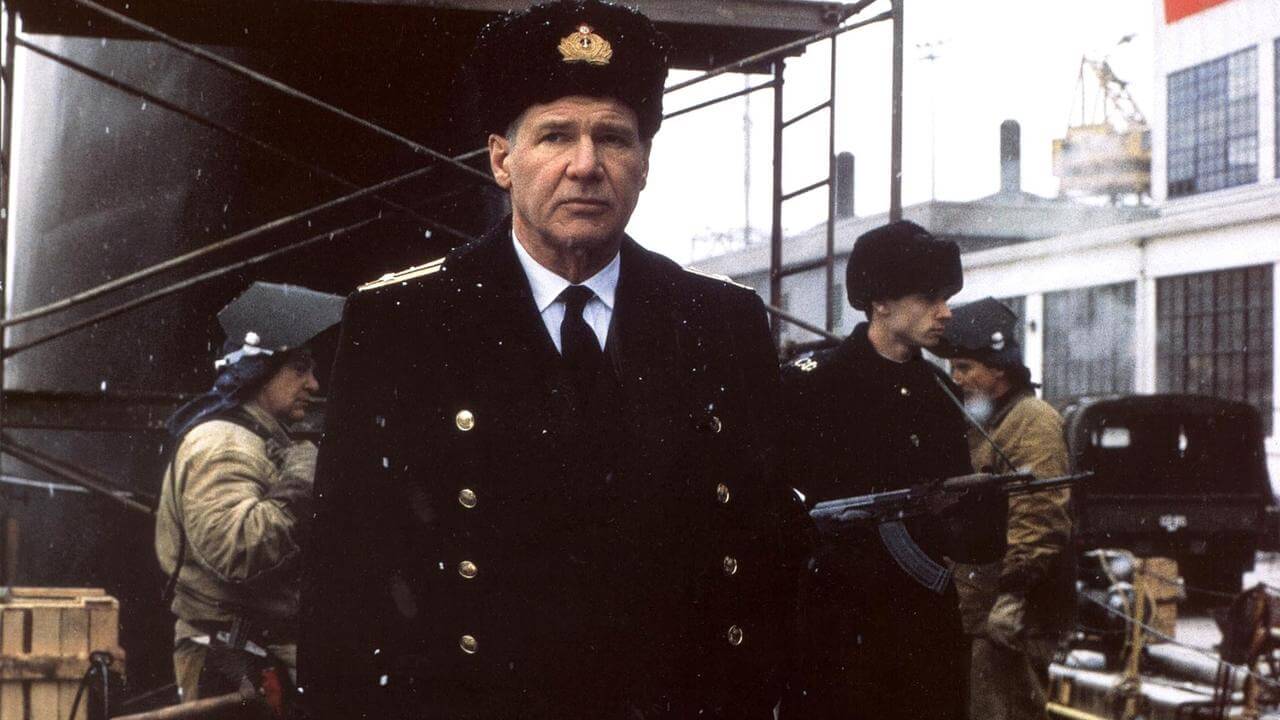
Contrary to what might seem after watching the trailer, the film is far from being an action movie or a classic war drama, as we’ve been accustomed to with submarine cinema. Oh no, K-19: The Widowmaker is a classic drama, telling a simple story of people who, in extreme conditions, are faced with destruction. People – let’s add – led by a chilly, ruthless, and toughest of tough captains of the Soviet fleet – Harrison Ford!
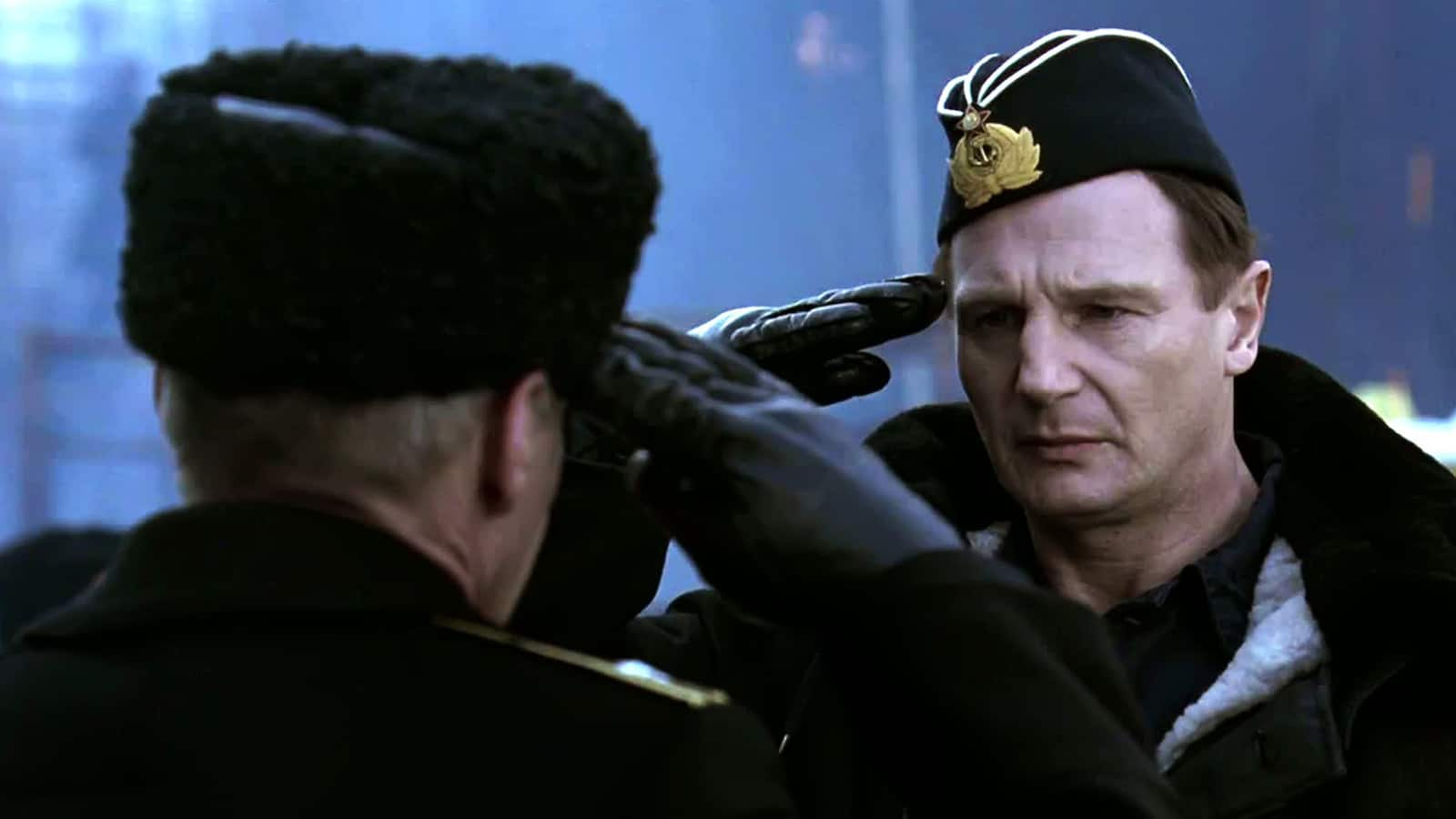
I must say right away that this is a role that makes K-19: The Widowmaker truly good and valuable. It can boldly be said that it’s an acting performance that outshines the entire cast. Harrison’s character is a cold, heartless, and unstoppable submarine captain who decides blindly to carry out the crazy orders of the command, dictated by political ambition rather than common sense. He treats the crew extremely harshly, if not heartlessly. Sometimes I had the feeling that the character of Captain Vostrikov is just a mere apparatchik, extremely unpleasant, repulsive, and simply inhuman. Orders are sacred to him, the crew counts less. On the other hand, there is the ship’s first officer, Polenin (played by Liam Neeson), beloved by the crew but considered by the party – too soft to fulfill such a difficult mission. And the mission is difficult because the ship is actually full of defects, poorly equipped, and the catastrophe is only a matter of time.
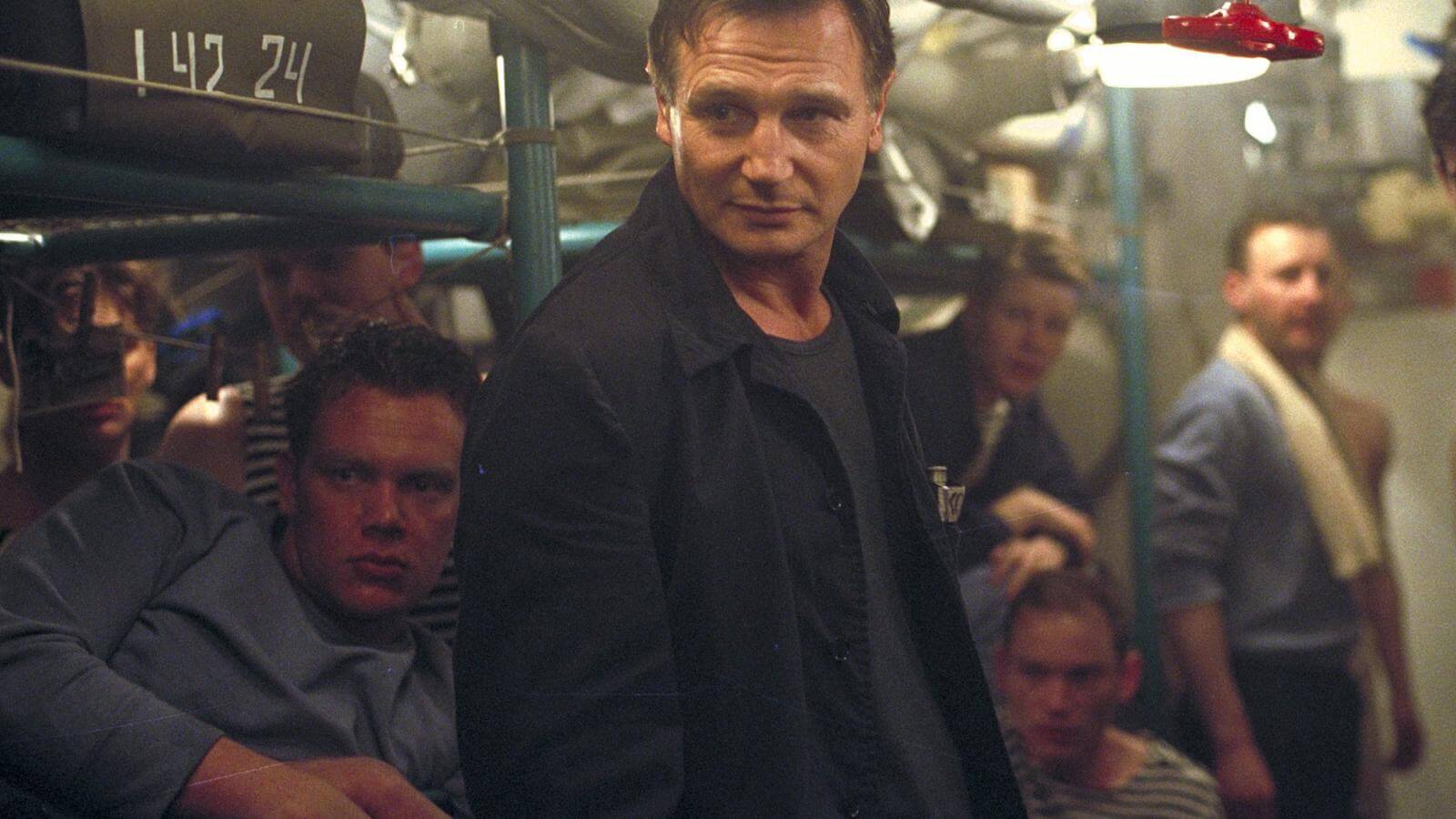
When it occurs, K-19: The Widowmaker becomes a classic drama, I dare say – a truly tragic drama, sometimes even brutal, flaunting shocking scenes depicting irradiated bodies, panic, despair, and resignation. The mosaic of human attitudes and characters aboard K-19 provided ample room for the director, which was used to the fullest. And again, against the background of really good acting, Ford performs excellently, whose character at this point begins to have doubts, his armor of ruthlessness begins to crumble. However, the character of this man, like a runaway colossus driven by the force of inertia, cannot or simply does not know how to stop this madness, he does not agree to interrupt the mission, to sink the ship and save the crew. Until almost the very end, he believes that he can control the situation, that this time too he will emerge victorious from the predicament. However, the increasing casualties, the wounded, the growing radiation of the ship, and the awareness of the fact that the ship simply cannot handle the task, take their toll. The awareness of inevitable defeat, and in perspective – a military trial and deportation to a labor camp, however, seem not to impress Vostrikov. Only subsequent, increasingly dramatic events slowly tear off his mask of ruthlessness and lead to a quiet, honorable resignation and simple, human compassion.
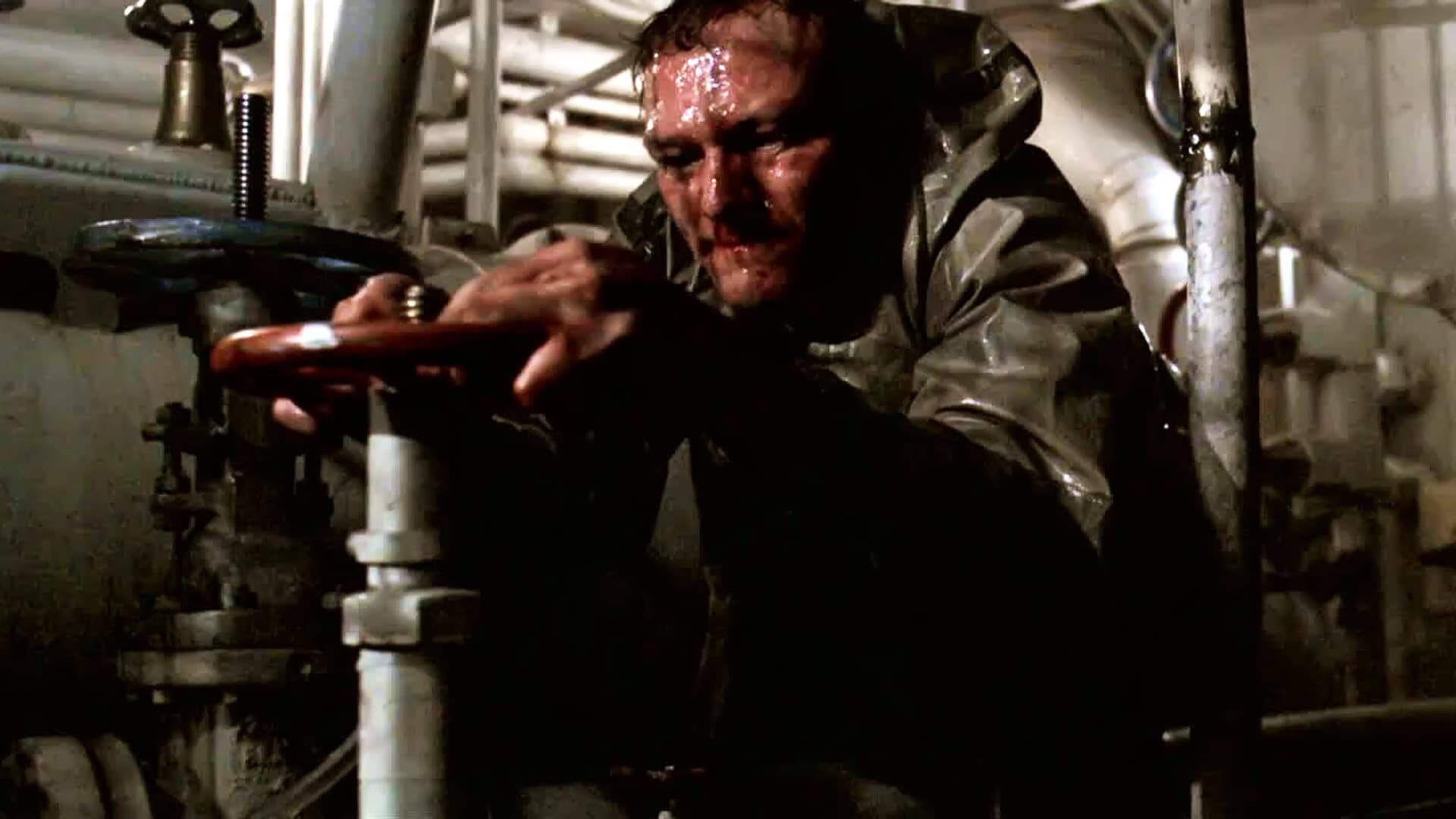
Great applause to Ford for managing to show all these subtle evolutions of his character with minimal acting resources, playing very sparingly. It’s one of the best roles of this star. And the others are not bad either. Particularly interesting is Peter Sarsgaard, playing the young, inexperienced commander of the ship’s atomic section. His character of a young officer, who simply and humanly fears going to certain death, and in the end achieves true heroism, is somewhat pathetic, but credible and heartwarming. Just like the nameless heroism of the entire ship’s crew, shown perhaps a bit schematically, but truly and shockingly. The drama of the characters’ situation is emphasized by the oppressive, claustrophobic set design of the ship, in which the tragedy unfolds before everyone’s eyes and becomes the fate of the entire crew. All of this together makes the viewer feel tired, depressed by the atmosphere of K-19: The Widowmaker.
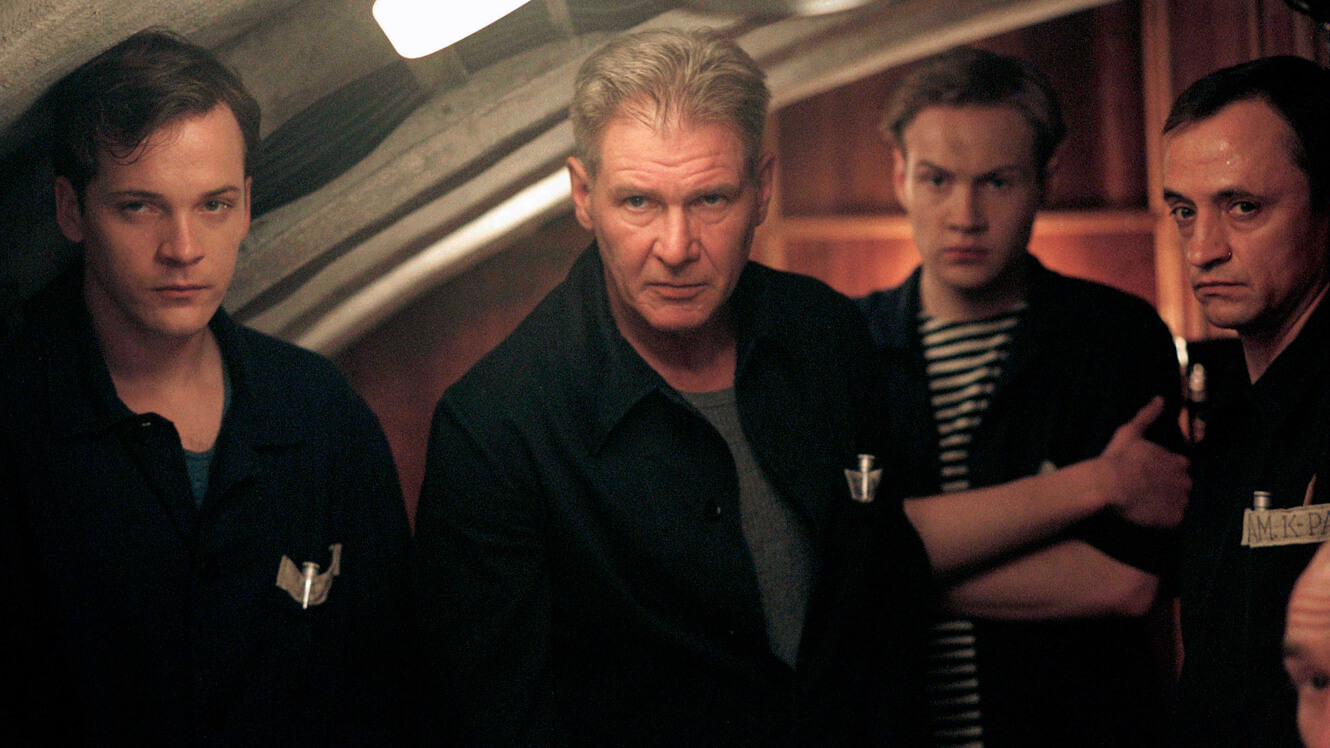
Truly, it is a rare case for a film to have such a strong impact on viewers. The whole thing is complemented by a sad and bitter ending, in which the characters realize how much they have been deceived, how much they have been used. I emphasize again how extraordinary this film is, as the tragedy of the Russians is told by their recent enemies. Fortunately, the director did not try to make a “Russian” film – the actors do not speak with a Russian accent, Kathryn Bigelow avoided using national stereotypes to portray her characters. As a result, a true and sincere film was created. A film with a dense and heavy atmosphere, truly showing the dark history of people being mere fodder for the monsters of great politics. K-19: The Widowmaker is a well-played, well-directed film; simply excellent cinema, a kind of homage to the fallen. Both the content and the execution of K-19 make this hackneyed phrase regain its true meaning.
Words by Dariusz Zak

